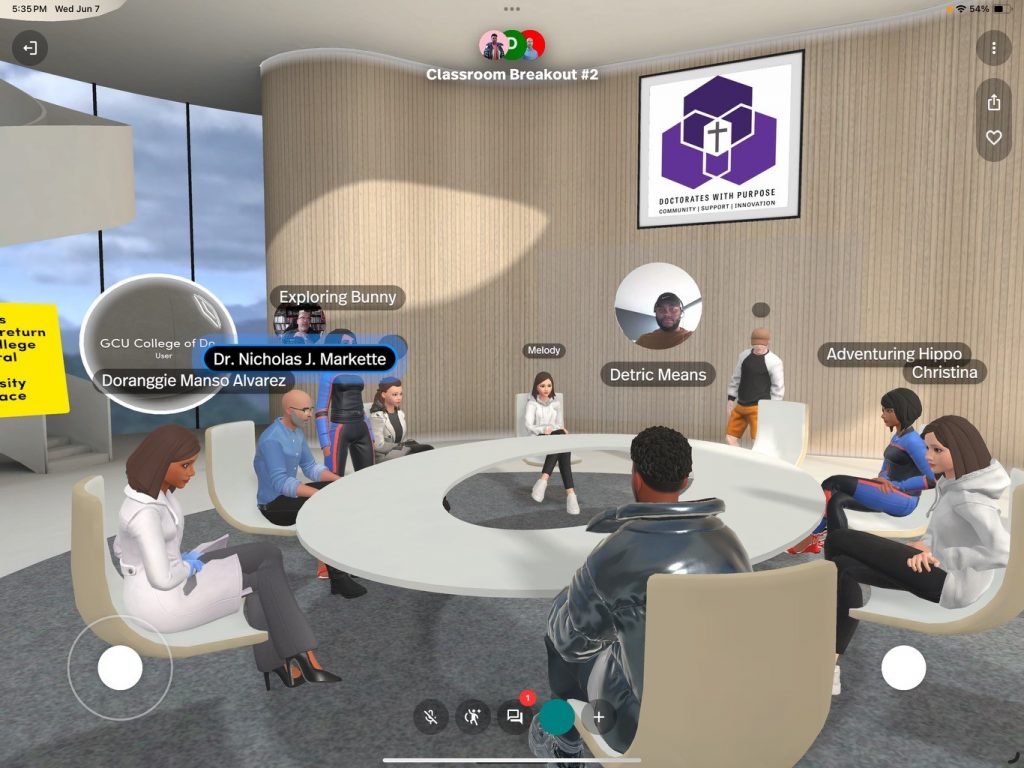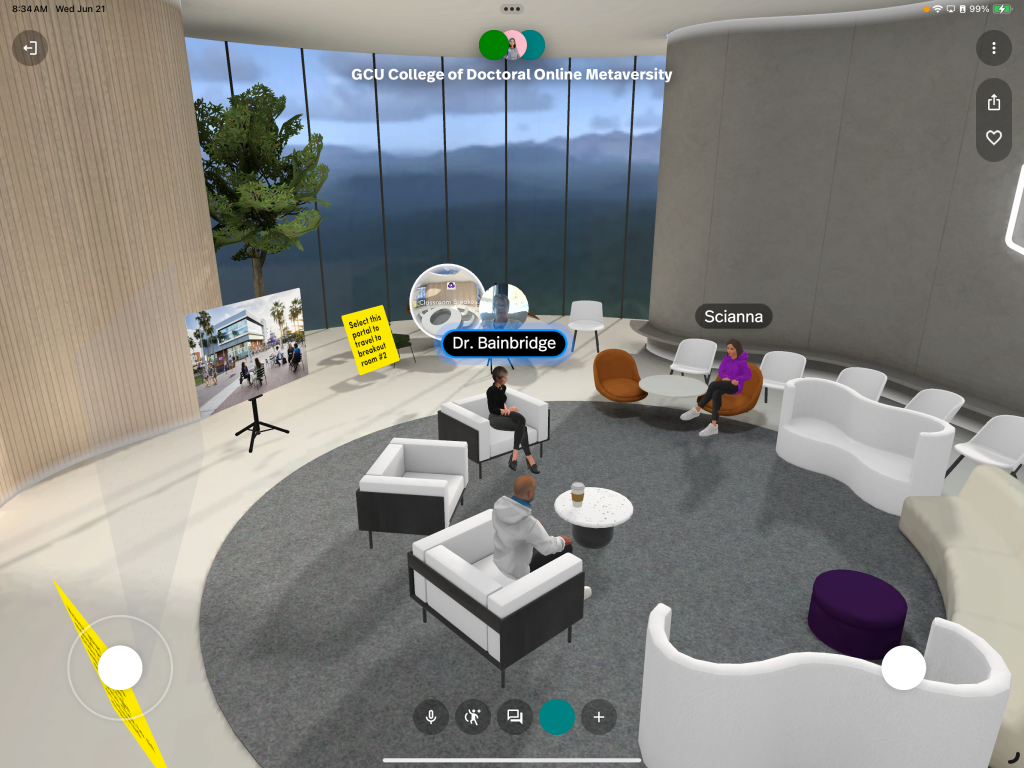
We’re all familiar with Zoom and Teams conferencing calls, but have you ever envisioned meeting with colleagues in the metaverse?
The metaverse is a highly immersive virtual world, used to play and socialize, and now it is being used as a tool for Grand Canyon University to collaborate in academics.
“We had people from Florida, Tennessee, Connecticut and Canada join us, and for all intents and purposes, we felt like we were in the same space. It’s just a different sense of connecting and presence that I think is a lot different compared to Zoom,” said Greg Lucas, College of Doctoral Studies online faculty chair.
Dr. Nicholas Markette, Assistant Dean of the college, uses the pictured space as optional sessions for his online doctoral students to prepare them for their first residency. Five to seven spaces can be used for different GCU student populations.
For the past month, students have been using the metaverse outside of class, working on projects and getting to know one another.
“They’re at a pivotal point in their program where they’re having this type of engagement and interaction with each other on their dissertation and the development of their topic. It’s critical and exciting to have this portal for them to come into,” said Dr. Cynthia Bainbridge, Associate Dean of the college.
The metaverse workspace is highly lifelike, with spaces resembling the inside of different GCU colleges and even the ability to view the world from “first person” – as if looking through the eyes of your avatar.
Rather than being assigned breakout rooms, students can “walk” into their breakout rooms to meet their groups.
They also have the option to customize their own avatar or scan their face to create an identical virtual character.
Bainbridge said the metaverse meeting space is unique because it’s introducing students to technology they might have not explored before and gives them the opportunity to navigate advancing technology.
“We think this type of metaverse environment will build community, provide students with a better level of support, and it’s innovative. It hits those three underlying tenants (community, support, innovation) of what we want to do with our colleges. There’s a tremendous amount of opportunity with this type of space,” said Bainbridge.
The metaverse was introduced to GCU through Lucas, who said he always has been a gamer and has used VR technology for years.
“Instead of exploring it just for the purpose of gaming, I started to explore it for the sense of presence and belonging,” said Lucas.
When the pandemic shut down operations, Lucas didn’t see his team for nearly two years – bringing him feelings of isolation.
“The pandemic has made it so critical for people to want to feel connected with other humans. Trying to find something that makes those real human connections is probably more important than ever,” he said.
Lucas recalls hearing GCU President Brian Mueller speak of a “new generation of learners,” referencing online students who wanted to delve into something different from the current online learning program, Halo.

He said his own students expressed their excitement for new technologies and already have felt more engaged using the metaverse for things like networking.
“If the doctoral learners make connections with other doctoral learners and have one-on-one or group dialogue together, they develop a support system which goes so far in their success in our program,” said Bainbridge.
As with any introduction to a new technology, issues crop up, such as teaching students basic keyboard commands so they can walk and sit in the metaverse. The doctoral college is focusing on reducing as many barriers as possible to make the transition easy.
Detric Means, a GCU university admissions counselor and doctoral student, said he loves the metaverse because it brings a new perspective to online learning.
“You don’t really get a feel for people’s personalities online, but it’s much different in the metaverse. You’re engaging with each other and having a community sense that many online platforms don’t have,” he said.
He said he feels that those skilled in videos games can adapt well to the metaverse, but that while he’s not much of a gamer, he was able to pick it up easily.
“I think the metaverse is definitely going to change the game and set the tone for other institutions. That’s the wonderful thing about GCU, providing that example for other higher education institutions that are trying to do the online platform,” said Means.
The College of Doctoral Studies faculty have shared that there’s a tremendous amount of opportunity for this space within other GCU colleges across the board.
“This is just the beginning of what’s possible – it’s in its fundamental steps right now, and we’re going to keep adding to it,” Lucas said.
GCU News staff writer Scianna Garcia can be reached at [email protected].
***
Related content:



































































